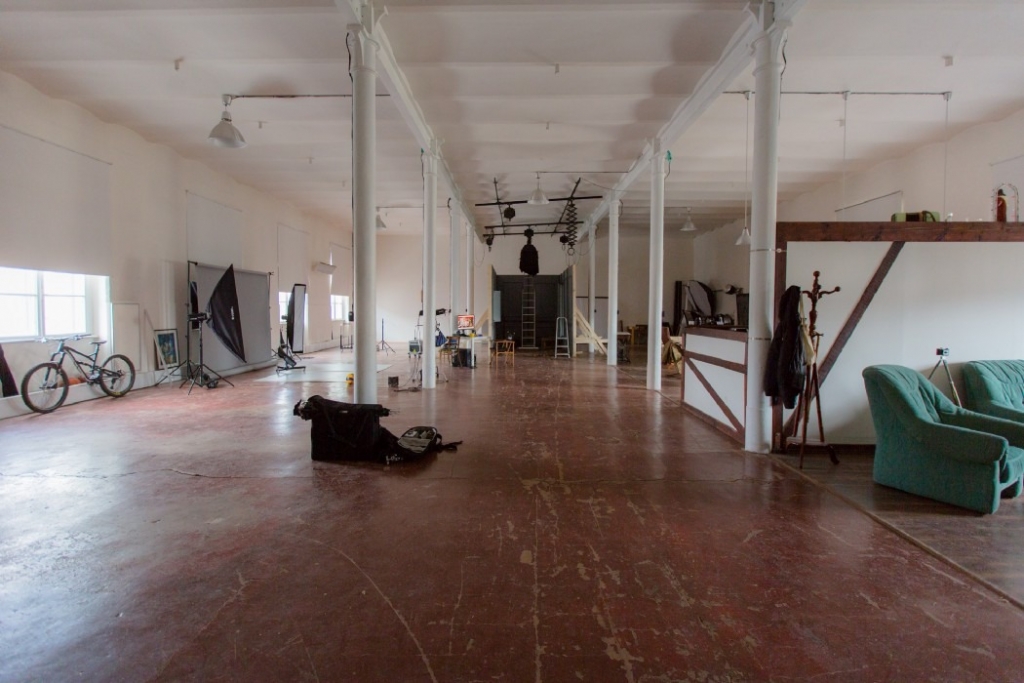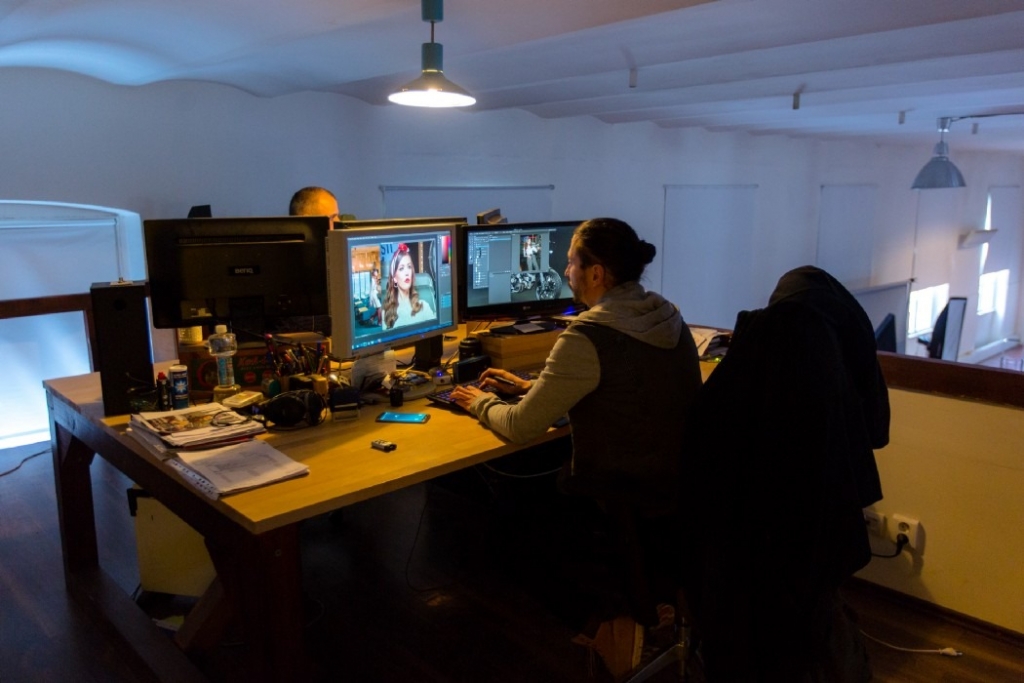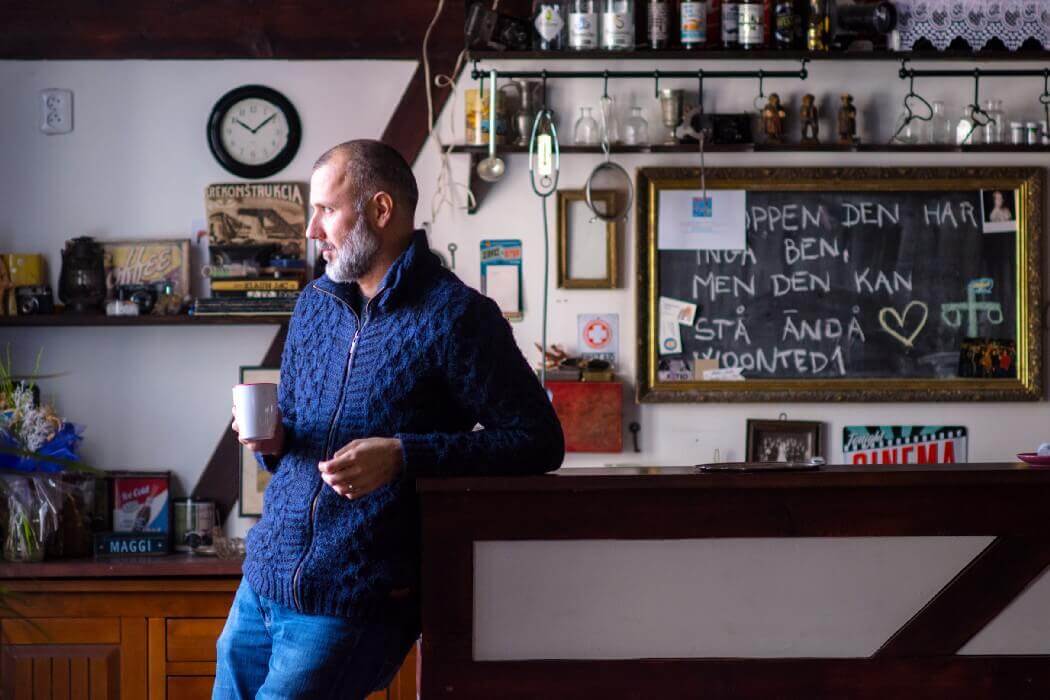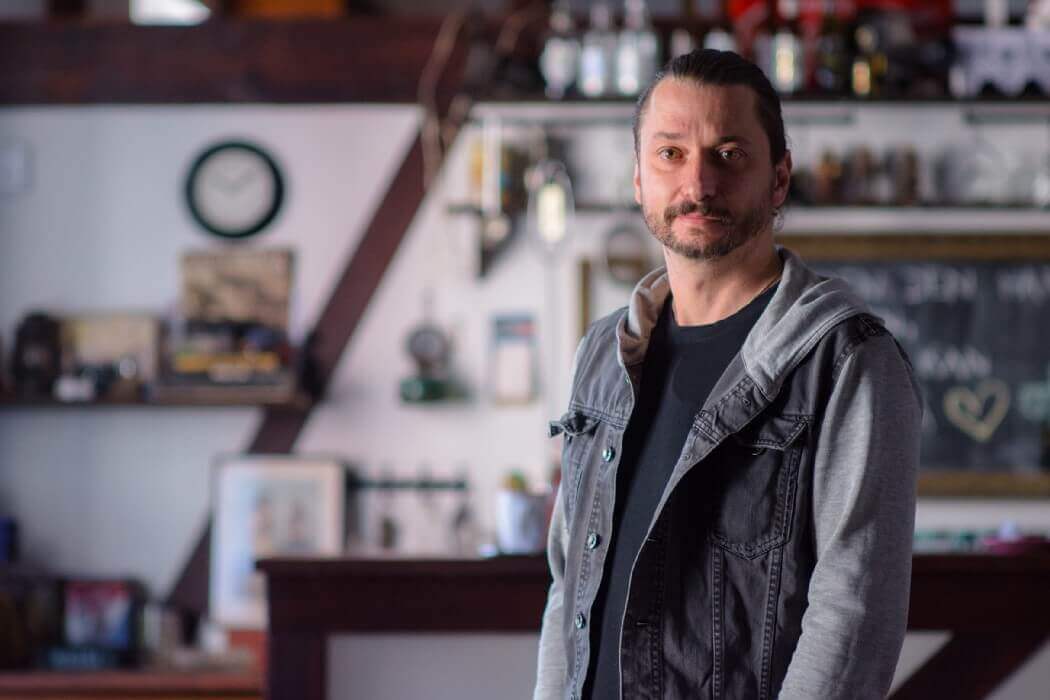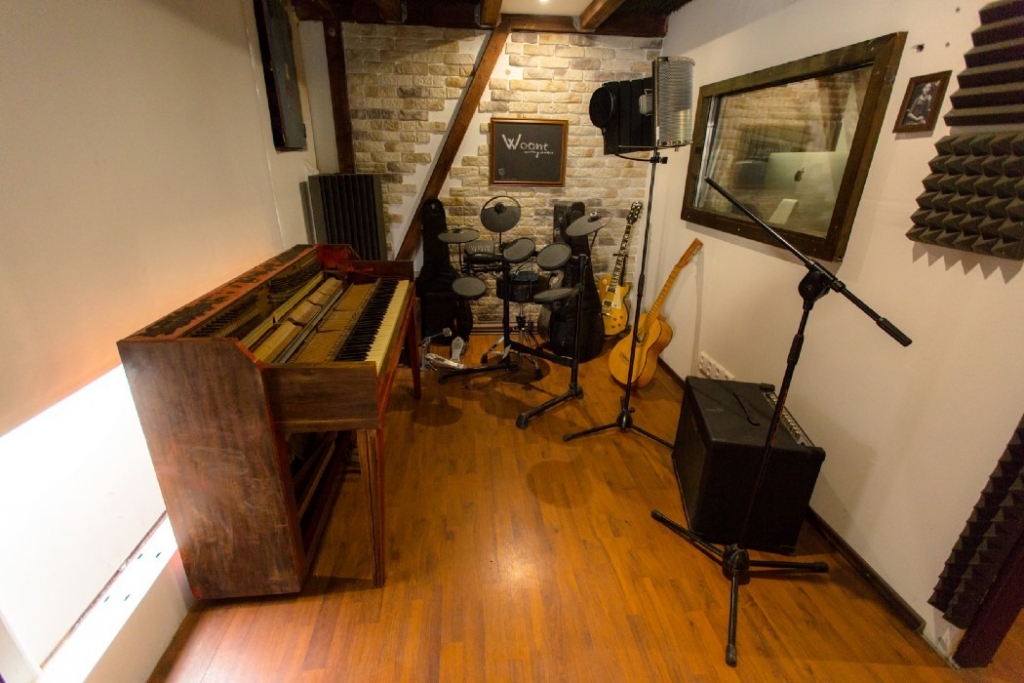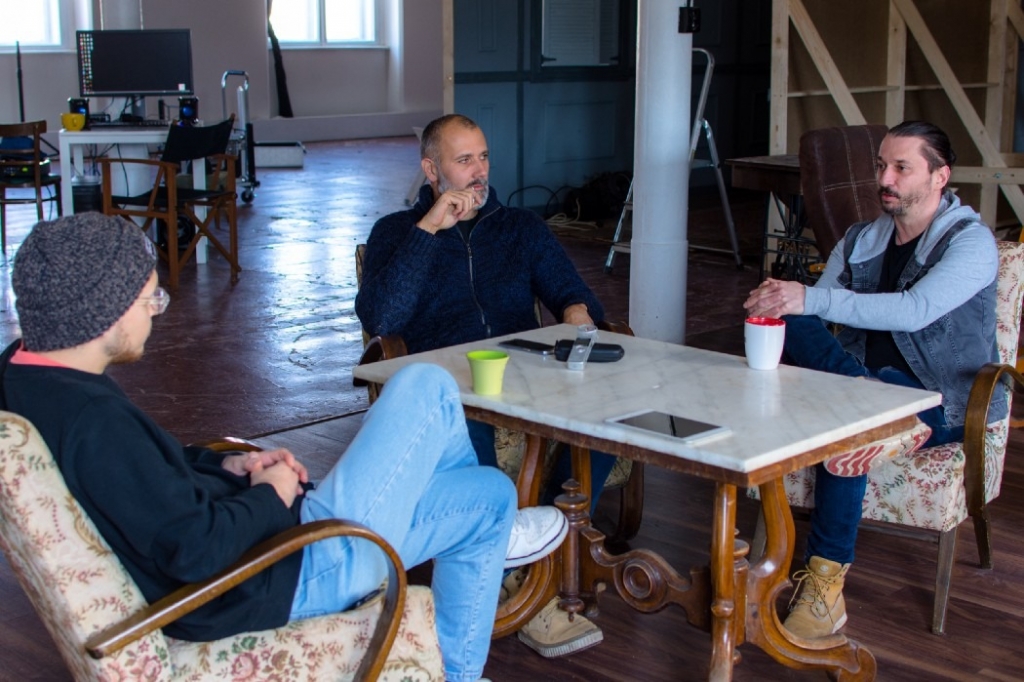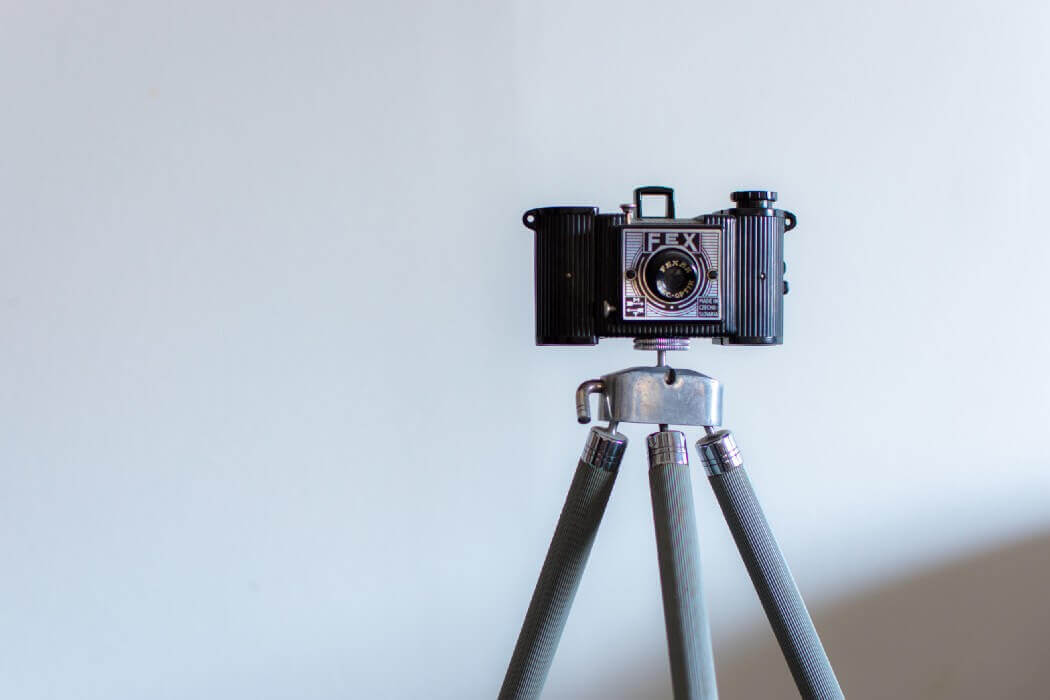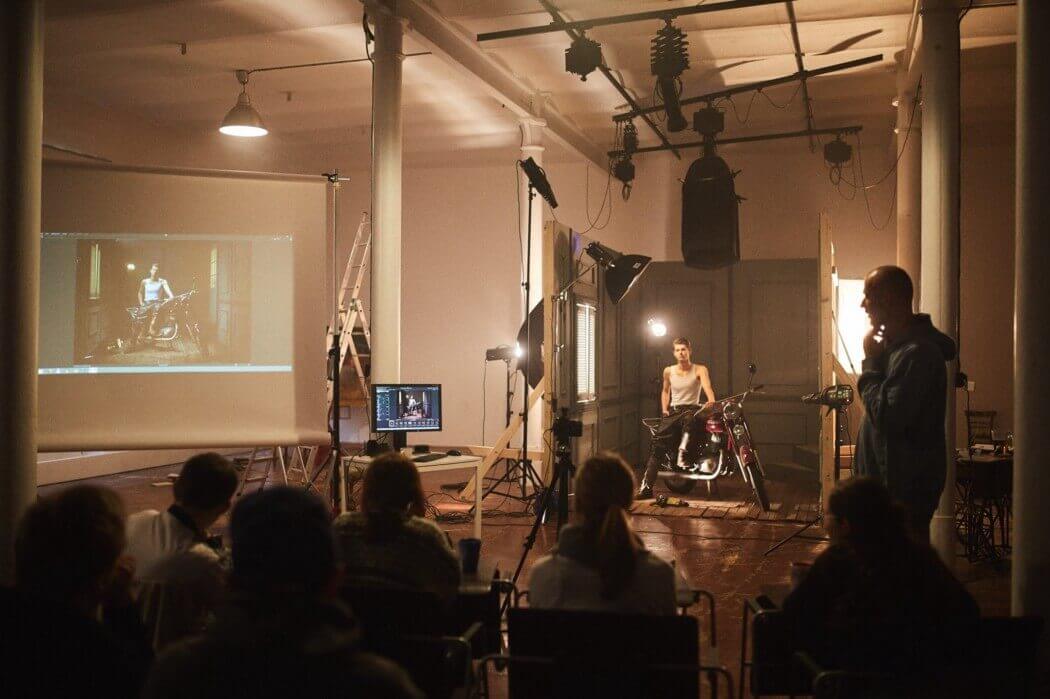Audiovisual studio Woont produces commercial ads and quality documented products
Great things don’t just pop in. It’s been widely known that great things only come if you persevere in your desires. If you pursue your vision not based upon the available means but rather upon the belief in your dreams. Woont, the full-service film and photography production studio based in Košice, Slovakia, is a perfect example of how to start a career in what you love with no means. Suspend your disbelief, grab a coffee and have a closer look at their story brought to you exclusively by The Invisible Hotel.
Right now, we are in the biggest photography studio in Košice. How did you manage to build it?
Peter: It took a lot of time and effort. We both started some 15 years ago. Later, we met and decided to work together and learn everything from scratch. Back in the 1990s, the options were limited, there were no workshops, schools or studios and people were reluctant to share their know-how. We bought our first lights, built our own setup and, gradually, we were adding more equipment and learning how to use it as we went along.
Jan: At one point, we found a studio on Hlavná but we were still virtually unknown. That being said, we had a lot of courage, we worked hard, even shooting weddings and our portfolio was slowly growing. Later, as we began working with modelling agencies and local designers, our photos were published in magazines and our business took off.
Why did you decide to move here, to Strojárenská?
P: Our work was getting more and more complex, to the point where the old studio simply felt too small and we could no longer work there. We started looking for a new place and found this former welding workshop, which needed tons of time, energy and money. We would work here 7 days a week, 14 to 16 hours a day, come early and leave late. It took us four years to build it the way we wanted it to be.
How has this new spacious studio changed your work?
P: We knew that it was essential for us to be able to do everything in-house, from the initial concept to production. Having to hire others to do some parts of the production is complicated because the people or equipment might already be booked by someone else. That’s why we also have our own recording studio here and all we have to do to record voiceovers is go downstairs. We can also finally work with light the way we’ve always wanted to and do many other things we couldn’t do before. This space is also very comfortable, 10 people can sit here, have coffee and do post-production.
J: In order to stay in business, we need multiple sources of income. Our ambition is also to be able to compete with Bratislava-based studios, which used to be problematic since we didn’t have all the necessary equipment and renting it was very expensive. That’s why we decided to spend 50 thousand euros on a camera, knowing what an enormous asset it would be for us. You can’t become a professional unless you use these things daily. When we first started, this equipment was not available in Eastern Slovakia at all. Today, we are not only able to use it ourselves but Woont has become the place where others can come and rent whatever they need.
Which projects have been pivotal for Woont and changed the way you work?
P: The spot for the 2013 European Capital of Culture was a turning point. Visit Košice asked us to do a promotional video about Košice. It took us roughly half a year of hard work. Even though it all looks very natural, there were about 120 extras. After a while, we were told that our video was nominated for an award at the festival in Karlovy Vary. When they called to tell us that our video won among 163 countries and ask whether we wanted to come and accept the award in person, we said no, we’re busy. (Laughs) But in the end, we did go. It is the oldest tourist film festival in the world and we were surprised to see that it really was a major event.
J: We tend to be very critical of our work and the Košice spot was no exception. Production started in autumn, when the spirit of the city is fading, along with all the greenery. Still, we knew that there simply couldn’t be clouds or rain. Even though we could’ve taken the easier way out, we didn’t. The video is full of sunshine and smiling people.
P: Music videos are very valuable for us, if quite rare. Most recently, we did a video for Peter Bič Project. We don’t make any profit on such projects and invest the entire budget into production in order to try new things. For us, it’s both a workshop and team building, working together all day long and experiencing both stress and euphoria together. That’s better than any workshop that money can buy.
Discover even more self-made men. Book a room at The Invisible Hotel and find out where the coolest ones hang out.
Do you follow new trends?
J: There are so many things that can be learned from Kubrick, Hitchcock and other classical filmmakers that 90% of films, whether Slovak or foreign, simply don’t get and neither do we. The rules of filmmaking are pretty clear but the trends change when it comes to fast cutting, efficiency and shortcuts. That’s what applies to Instagram, Facebook and YouTube content. It’s important to follow the technological aspect of these new trends because once you fall behind for a couple of months, you’ve missed out on certain things.
Recently, you’ve decided to use your experience in cooperation with Creative industry Košice and start the ‘Foto Academy’ project. Tell us about it.
J: Our cooperation with CIKE started through the Escalator project that we were selected for and it proved to be a great experience. It helped us understand the purpose of networking and getting to know other people. That’s when we started thinking about Woont’s mission and vision for the future. We realised that what really matters is not becoming the best cameramen and photographers but creating opportunities for other people in our city to grow as well. CIKE came up with the Academy in part to address the shortage of photographers. That’s why they turned to us to take up this aspect of the project while they take care of all the rest.
P: As we’ve already mentioned, we started from scratch and that’s why we’ve decided to help others, to teach them what we know so that they don’t have to learn everything the hard way as we did. We don’t care much for keeping our know-how to ourselves. Our goal is to share information so that other people can learn from us and one day we can work together on a major project.
What is the main aim of the Academy?
J: Primarily, it’s about training people for CIKE to cooperate with, since commercial photographers are way too expensive for a non-profit. Everyone’s work is unique, so what matters is that at the end of the course, all the participants are able to produce good quality work. The concept is built on providing support for people who are interested in photography but don’t have the necessary skills yet. We’ve prepared a series of workshops to help them become self-sufficient but also work together and be able to stand in for one another. About 60 people applied for a place in the Academy and their portfolios were very interesting.
Later, we interviewed them to see if they’re able to work in a team, communicate with clients and listen to others, rather than push their own vision. The candidates that passed the initial selection process are now our students. We’ve started with teaching them how to work with lighting in our studio. Later, we’ll move on to the Invisible Hotel’s rooms.
Taking pictures of the Invisible Hotel’s rooms is an important part of the project. How are you going to approach this task?
J: The pictures will be used online, which must be taken into consideration. First, our students are going to shoot a model room, get acquainted with the equipment, the lighting and all the aspects of this task. They’ll work on the other rooms on their own but we’ll still be there to mentor them. It’s a long process that gives students a chance to acquire practical skills.
P: They’ll benefit from our 20 years worth of experience in 10 workshops.
You’ve built a production company, worked on major projects and now you are passing on all your experience to others. What are your plans for Woont’s future?
J: In the years to come, we’d like to look back and see a growing community of photographers and video producers in Košice, knowing that we’ve played a part in making it happen.
Did you like it? Košice is full of such stories and we are the ones who bring them to you. Once a week, we highlight the invisible places, people and their values to help you discover the invisible. Follow us on social media and book a room with The Invisible Hotel to experience stories on your own skin.

